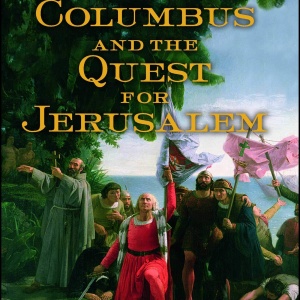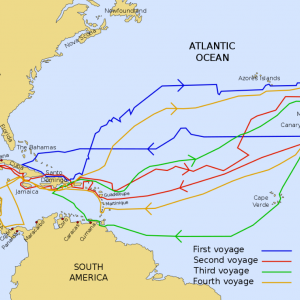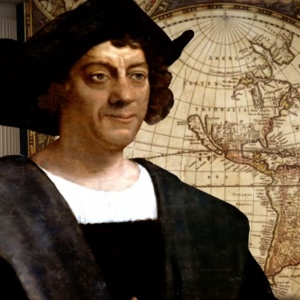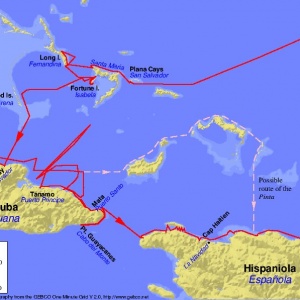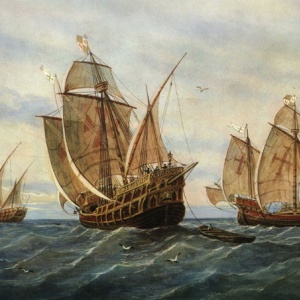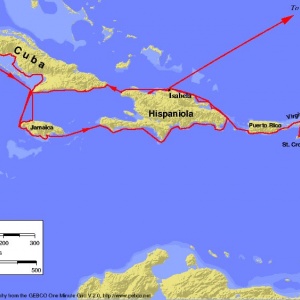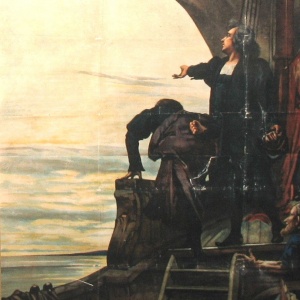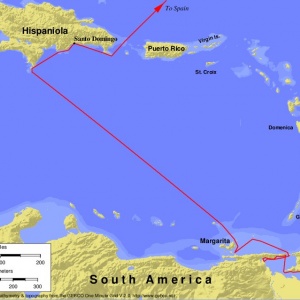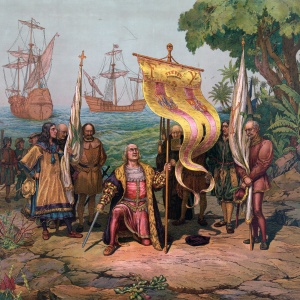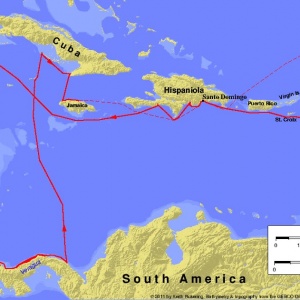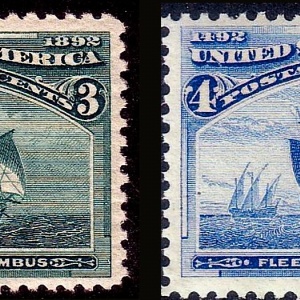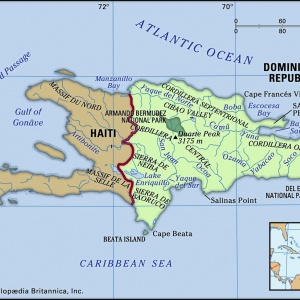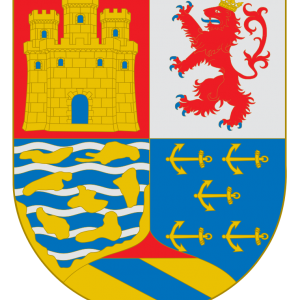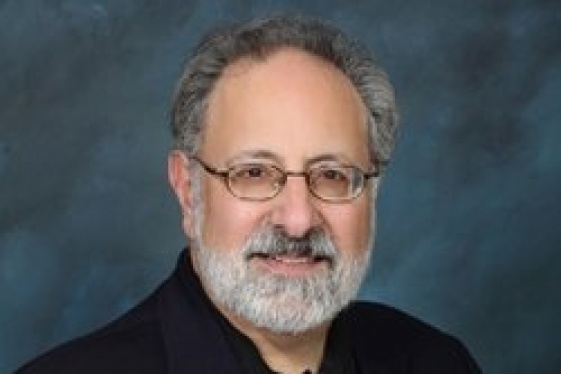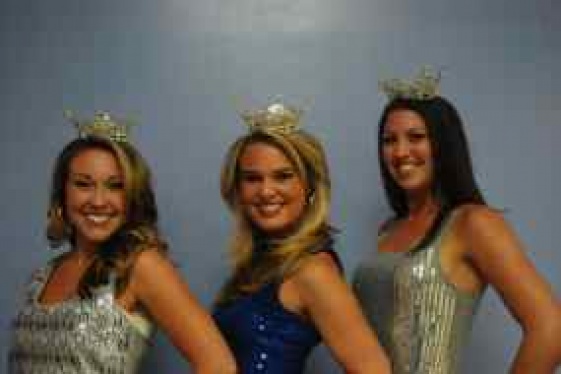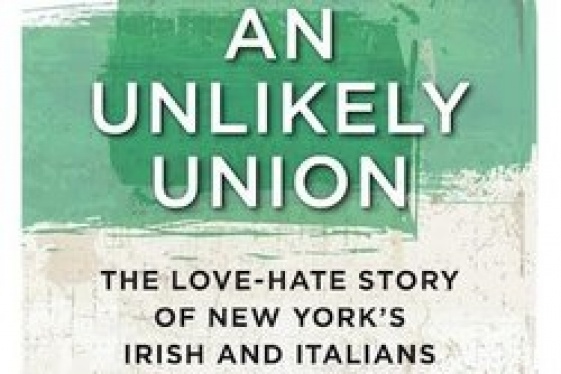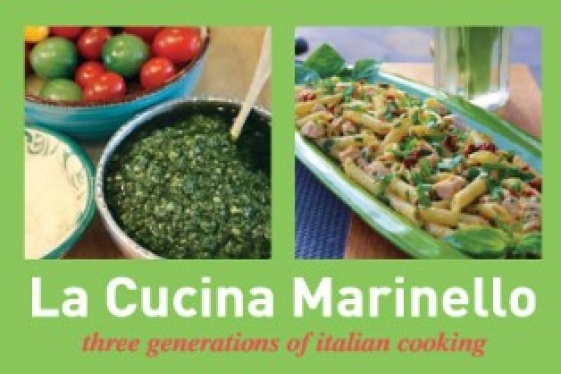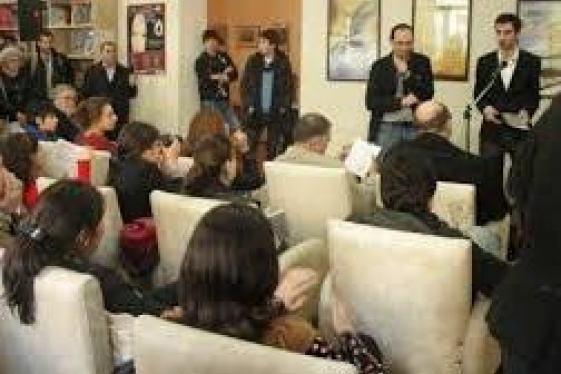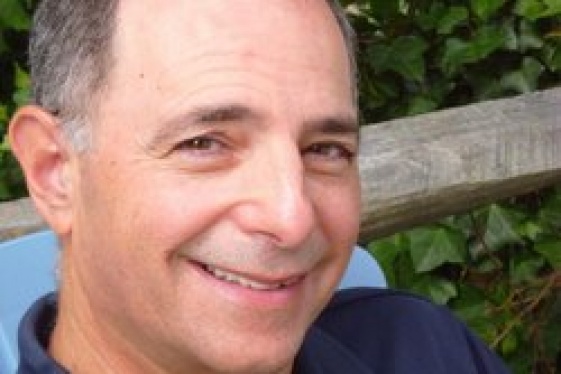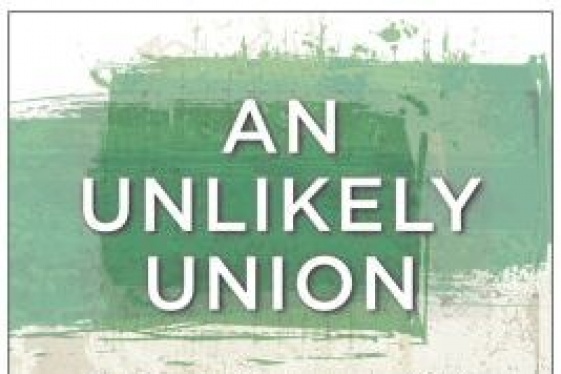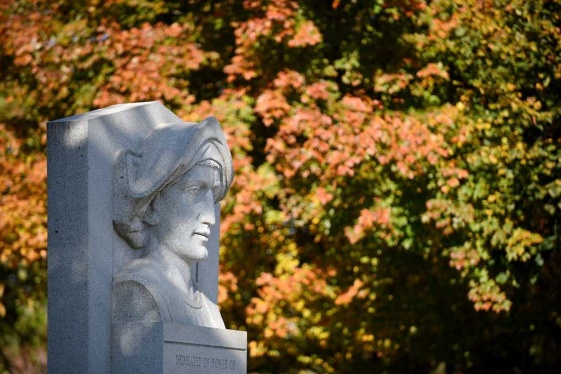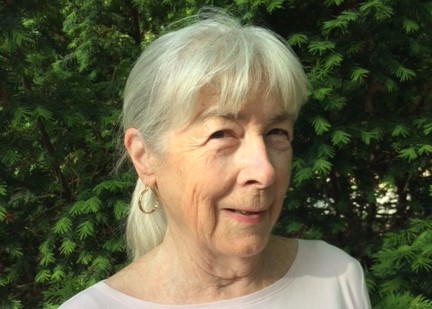
Carol Delaney (Author of the book "Columbus and the Quest for Jerusalem")
Incontriamo la professoressa Carol Delaney, autrice del libro "Columbus and the Quest for Jerusalem"

As every year, on the occasion of the second Monday of October and of the celebrations of Columbus Day, We the Italians publishes an interview dedicated to Christopher Columbus. It's one of the ways we have to keep the focus on a theme that we care a lot about, which is also the only one on where we strongly and openly take sides on: defending Colombo, and therefore the Italian American community and Italy.
The protagonist of this interview is Professor Carol Delaney, who did a lot of research on Columbus and then published an interesting and innovative book: "Columbus and the Quest for Jerusalem". We thank her and hope that it will soon be possible to translate the book into Italian and distribute it here in our country.
Prof. Delaney, let’s talk about your book, “Columbus and the Quest for Jerusalem”: how did you come up with the idea? Which were your sources, and how did you do your research?
I was teaching a class in the Fall of 1999 called “Millennial Fever” and in one article I came across a little footnote about “Columbus’ apocalyptic millennial beliefs.” I had never heard about this nor had anyone I asked. At the time, I knew very little about Columbus except that in "1492 he sailed the ocean blue." But since much of my study and work has involved religion I thought “this demands investigation.” Later, when I gave a talk at Brown University in Providence, RI, and someone asked what my new interest was, I said Columbus. They sent me to Brown's John Carter Brown library, which has a lot of material about the encounter between the old world and the new including much about Columbus. I returned in the summer reading everything I could and, the next year I retired from Stanford, moved to Providence and spent more time there researching and writing. My major sources were Columbus’ diary, his letters, his books, his son Ferdinand's biography, and material written by people who knew him. Some people think he was illiterate, but he was not. He wrote in Latin and Spanish (Genoese was not a written language) and he had a huge library as well. Obviously, other scholars have written about him and I’ve listed all of them in my book.
The more I did research, the more I came to like and respect him and got furious about the kind of things that some people have been doing and saying about him, especially Howard Zinn.
Who was Christopher Columbus?
There are people who claim he was not Italian and not from Genoa, but that is ridiculous. He was definitely Genoese though he may have been born in a little village outside of Genoa. His father was one of the five gatekeepers of the city, his uncle was the lighthouse keeper, and later when Columbus made his will leaving money for relatives and other people there, he wrote: “Because since from it I came and in it I was born.” Apparently, he was an attractive man, rather quiet, and certainly well-read. I came to like him through his writings and his letters to various people, including his sons. He also left money for the support of his mistress, mother of their son Ferdinand, which was very unusual in those days. I was pleased to hear about that.
Was he very religious?
Yes he was. He was very religious, attended church, and was partial to the Franciscans with whom he often stayed. In fact Bartolomé de Las Casas said that he could have performed all the religious activities on the ship, because he was so well-read and knew the religion so well.
He became a Franciscan monk before the second voyage, after he had returned and all the men he had left had been killed after going against his orders not to go pillaging and raping, ending up being killed by the chief of that tribe. I think Columbus became a monk not only because he was religious, but also in penance not only for his own men but especially for the native they had killed.
In your book you reveal that his goal was not the one we all think…
His whole goal was to meet the Grand Khan in Cathay (that we now call China) to set up a trading post. The money to be gained from the trade was to be used to fund a crusade to take Jerusalem back from the Muslims before the end of the world. It had to be in Christian hands so that Christ could come again and save believers. Columbus thought that the end was coming and he even figured out how many years were left. He wanted everyone to be saved and that is also why he kept asking the Spanish sovereigns to send priests to the New World in order to baptize the natives so they, too, would be saved. There was obviously no intention of enslaving the people of the greatest empire in the world.
Why is wrong to call Columbus “a villain”? What were Columbus’ relations with the Native Americans
He was very friendly with the natives whom he was soon to call Indios and became very good friends with Guacanagarì, the first chief that he met when he got to Hispaniola. I quote from his diary (p. 281): "I believe that in the world there are no better people or a better land. They love their neighbors as themselves, and they have the sweetest speech in the world; and [they are] gentle and always laughing." Columbus continually demanded that his men “not go marauding, pillaging, raping the women, or enslaving people.” When Columbus went back to Spain after the first voyage, he took 6 natives with him. All were baptized, thus could not be enslaved. Two remained at court, and the son of one of the chiefs became his godson and his loyal interpreter on the rest of his voyages. Columbus never had a slave.
I want to add another thing here: Columbus was born after the fall of Constantinople. This affected the Genoese colony living there, because that cut off the trade route to the East discovered by Marco Polo and it also cut off the pilgrimage route to Jerusalem. Both these things affected Columbus very much and as a child he saw ships sailing out to take pilgrims to Jerusalem.
He was not a villain. People are blaming him for what happened to the Indios (I do not refer to them as native Americans because he never set foot in the land we call America), but since he thought they were part of the Grand Khan's empire, he tried to be friendly towards them and he continually insisted on behaving properly with them, and he did not enslave anybody. When he left Hispaniola to go sailing in order to find the Grand Khan, the men left behind went against his orders and did the pillaging and enslaving. I have held one of these memos, afraid it would crumble to dust in my hands. Unfortunately, his men were greedy and rapacious and they were the ones who killed, raped and enslaved.
Columbus never had a slave: Bartolomé de Las Casas, who is now held up as the defender of the native people, had slaves as a child; and when he accompanied Columbus to the New World, he established two encomiendas -- big farms run by slaves. Only after Columbus’ death did he change his mind about the natives and said: “let’s bring blacks instead.” Natives were sent to Spain as slaves but these were people his men had rounded up when he was not around. Since they had been captured elsewhere, it was difficult to just let them go, so they were sent but slavery was not something that Columbus wanted to do.
Please, tell us something about his trips: they were incredible enterprises, we probably nowadays don’t realize how much
Yes, boats were small and wooden. I have boarded a replica of one and they are very small. The men had to sleep on the deck: they did not have bunks as boats today do; instead they usually slept on deck wherever they could find a place. The only instruments he had were a compass and hour-glass. The method of sailing is called "dead reckoning." They knew the direction via the compass and the sun and knew their speed by means of the hour-glass and the length of the ship. People at that time thought there were only 3 parts of the world - Asia, Africa, Europe, peopled by the sons of Noah. Columbus never realized he had found a fourth part of the world; he always thought he was at the periphery of the Grand Khan’s Empire. The sailing was difficult and they never knew exactly where they were going Columbus was an excellent navigator and it’s amazing, I think, what he did.
There’s a map in my book that shows where the New World is, in relation where China is and where he thought he was: at first he thought he was near Japan and thus China could not be far. For the first voyage there were only three boats - the Nina, the Pinta, and the Santa Maria, but for the second voyage Queen Isabella sent seventeen! Amazingly there were no mishaps. But this was also the beginning of colonizing. Although, at the time, "taking possession" was meant that it was Spain's (or Portugal's) for trade - others should keep off. Yes, when Pope Pius II heard about the discovery he divided the world in two: he drew a line down the Atlantic and gave the East to the Portuguese and the West to Spain! Yet one never hears about the Pope's role in all this.
In your opinion, why are counties, cities, and states choosing to replace Columbus Day with Indigenous Day instead of keeping Columbus Day and simply add another day for the Native Americans?
They've been hearing bad things about Columbus from people like Zinn and want to honor the indigenous people. I do have not have a problem with an Indigenous Peoples Day - we also need to learn more about them but we also need to learn a lot more about Columbus. I’ve also learned that doing away with Columbus Day is quite offensive for many Italian Americans who hold him as a hero. But the anger against Columbus was there even before this Indigenous’ Day thing came up. Howard Zinn was one of the first historians belittling Columbus without knowing anything about him, but we would not even be here without Columbus. He was the first one to come here even though he never stepped on the land that we call America.
What could Italy do to defend Christopher Columbus? Is your book going to be published in Italian too?
I guess having my book translated in Italian would make Italians happy. Perhaps some of them do not know much about him either. It could be great because people in Italy could find out that he was a good guy. There are now some people who have read my book who are trying to change the schoolbooks, and I’ve been trying to get into a school to read and to hear what they are saying about Columbus for I imagine that what they’re saying is not good.
I think we have to bring some of the good information about him in schoolbooks so that he is not vilified by the next generation. I know that somebody who writes the textbooks for homeschooling has already incorporated some of my material but I want the material to get into the public schools because that’s where most children go and I’m trying to do whatever I can to make that happen. Maybe Italy can help with this, I don’t know.
The idea to get rid of Columbus Day is wrong: we need to know who he was, what he did and that he was a good and religious person with good intentions. And then I think we should also have a separate Indigenous People’s Day.
You may be interested
-
'Phantom Limb': A Conversation With Dennis...
Dennis Palumbo is a thriller writer and psychotherapist in private practice. He's the auth...
-
A wreath for Columbus and three crowns for t...
The Columbus Day Committee of Atlantic City along with the Bonnie Blue Foundation annually...
-
An Unlikely Union: The love-hate story of Ne...
Award-winning author and Brooklynite Paul Moses is back with a historic yet dazzling sto...
-
Former Montclair resident turns recipes into...
Former Montclair resident Linda Carman watched her father's dream roll off the presses thi...
-
''La Gente di Mulberry Street'' presentato a...
Valsinni- Italia, terra di emigranti. Presentato a Valsinni il nuovo saggio storico di Raf...
-
'An Unlikely Union' author Paul Moses on his...
by Ginger Adam Otis Any journalist who has ever been an author has lived through...
-
'An Unlikely Union': Paul Moses on the urban...
Few American cities, with the possible exception of Chicago, do urban ethnic drama like Ne...
-
'Atmosphere of anger' in Glen Rock and beyond...
The debate over turning Columbus Day into Indigenous Peoples’ Day has people riled up on b...





